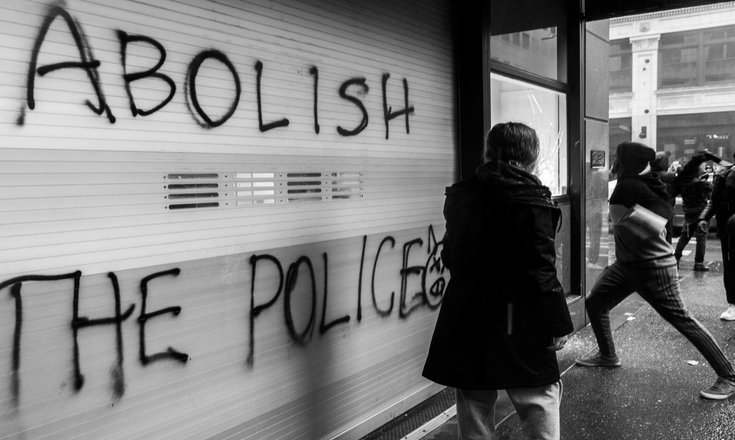Seattle city officials announced Wednesday their decision to withdraw a request that would lift eight years of federal oversight of the Seattle Police Department.
This change came on the heels of pressure from community organizers, political leaders and demonstrators calling for measures to defund and demilitarize Seattle police. Meanwhile, thousands continued to march downtown and in Capitol Hill, opposing police brutality and calling for racial justice.
So far there have been 14,000 complaints about police officer actions during the protests, who have used pepper spray, flash-bang devices and tear gas against the demonstrators. (The Geneva Convention, an international set of mandates on armed conflict, has banned the chemical that is used for dispersal in Seattle.) Those complaints have been forwarded to Seattle’s Office of Police Accountability, the watchdog agency responsible for conducting internal police investigations.
On Wednesday, Seattle Mayor Jenny Durkan addressed the thousands of protesters who’d marched to Pioneer Square from Cal Anderson Park. She was met with jeers and intermittent applause as she took the microphone. “True public safety does not come from police,” she said. “True public safety comes from accessing health care, education, justice, and good paying jobs, and respect and dignity.”
But by Thursday, she had changed her tone. “While these protests are going on, police are still called to respond to any number of actions from domestic violence to burglary to assaults,” said Durkan. “And when people dial 911, they want the police or the fire department to show up. We have to make sure that we have enough people and resources to make that true.” Durkan promised budget cuts in light of the situation, but wouldn’t slash the police department’s funding by half.
The same day, community organizers presented Mayor Durkan and Police Chief Carmen Best with three demands:
- Defund and demilitarize the police force;
- Dedicate more resources to health and social services;
- Release protesters without filing charges.
The “defund police” movement stems from frustration with the “military stance” of the police, and an acknowledgment that officers typically respond to situations with a level of aggression far higher than deserved. Advocates say Seattle “does not need a police force that looks and often behaves like a military unit, with automatic rifles slung across their shoulders and their identities obscured.”
The Seattle police budget for this year is approximately $409 million, which accounts for just over a quarter of the city’s general fund budget. Cutting it by half would redirect roughly $205 million toward social services addressing mental health needs, homelessness, and the economic disparities in Black and Brown communities.
Despite a strong liberal reputation, Los Angeles has the largest jail system in the United States. The birthplace of military-styled tactics like SWAT teams, Los Angeles leads the nation in deaths by police. Therefore, it is no small event that Los Angeles Mayor Eric Garcetti announced Wednesday that he would cut between $100 to $150 million from the Los Angeles Police Department, reinvesting those funds “in black communities and communities of color.” The mayor’s announcement is a sign that politicians are starting to respond to the demands of protesters. Activists in New York City have called for a $1 billion cut to the NYPD budget, which is $6 billion.
The idea behind defunding isn’t that police budgets should be literally slashed to zero, but that there should be a massive restructuring of public spending priorities. If we must have police, then we need better police; with more training, greater accountability, and an enormous reduction of shoot-first tactics and reliance on military equipment. Some of the proposed defunding measures for police officers include:
- Defunding police brutality by taking the settlements out of pensions
- Ban chokeholds and strangleholds
- Require de-escalation
- Require warning before shooting
- Exhaust all other means before shooting
- Duty to intervene and stop excessive force by other officers
- Ban shooting at moving vehicles
- Require use-of-force continuum
- Require comprehensive reporting each time an officer uses force or threatens to do so
Additional proposals have included removing qualified immunity and union protection for repeat offenders, initiating a three-strike program, and establishing a database of banned cops to prevent a repeat offender from simply moving to a new town and quietly taking a position on another force.
Alternatives to policing are making themselves known; communities are showing a preference to take care of themselves rather than rely on the heavy-handed approach of the police. The city of Dallas, for example, is considering a new approach. Social workers are being dispatched to 911 calls involving mental health emergencies, meaning people are receiving the care they wouldn’t find in crowded hospitals or jails. The program is showing signs of success.
For more information on the defund police movement, please visit: CampaignZero







Be First to Comment